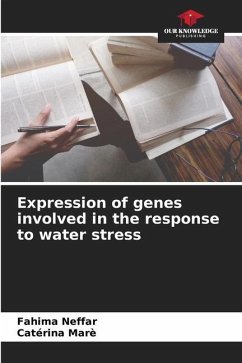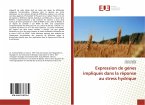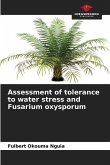The aim of this study was to test genes from different functional categories, involved in the response to abiotic stresses, in barley cultivars of different origins. The cultivars were two Algerian ('Tichedrett' and 'Fouara') and one Italian ('Nure'), and were exposed to different water regimes monitored by measuring RSWC%. The experiment was conducted in such a way as to have two levels of water stress (S1 at 40% RSWC and S2 at 20% RSWC) and a control regime at 95% RSWC. A behavioural comparison was carried out with a durum wheat cultivar, 'Ofanto', given its high resistance to water stress. The 'Tichedrett' variety, compared with the other two varieties, showed greater resistance to the stress imposed, and was not influenced in any way by the stress at 40% RSWC. This tolerance could be due to the high accumulation of transcripts of various genes and osmolytes known to be involved in the response to the effects of drought.
Bitte wählen Sie Ihr Anliegen aus.
Rechnungen
Retourenschein anfordern
Bestellstatus
Storno








